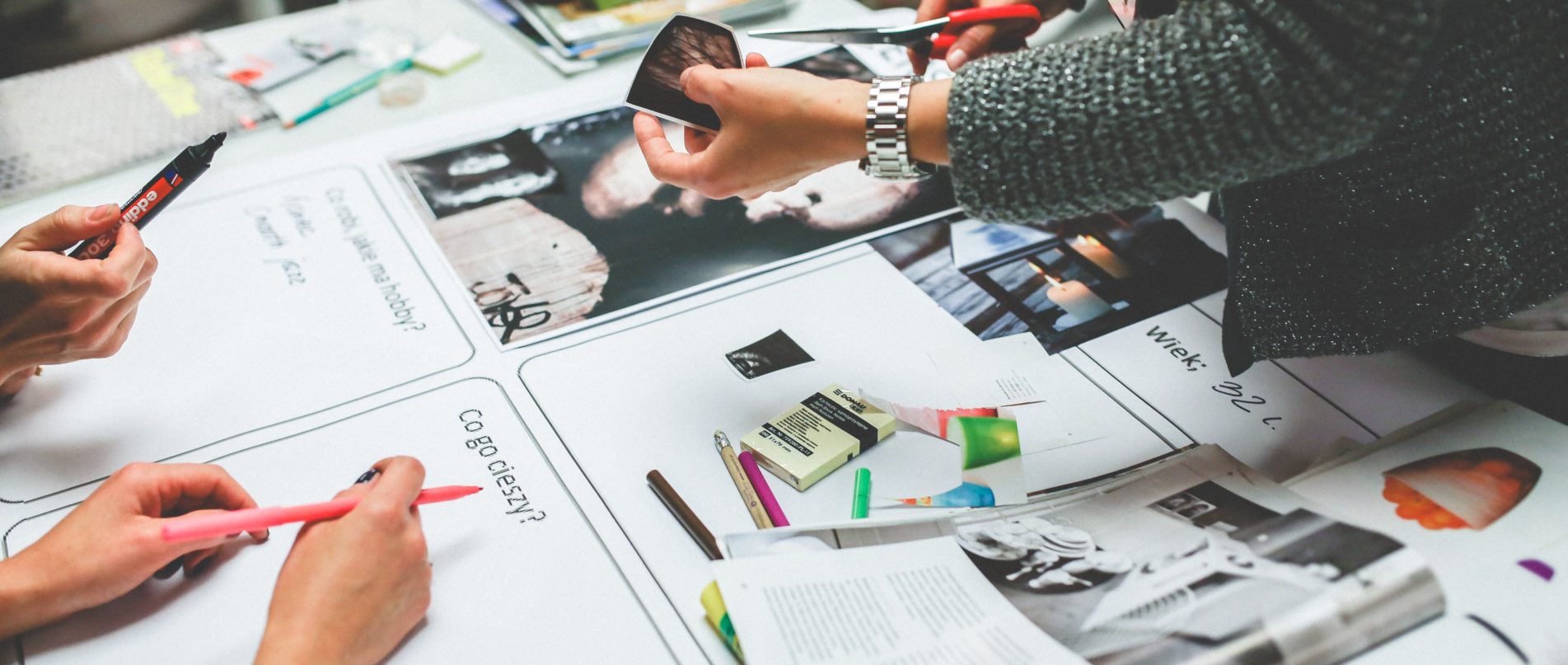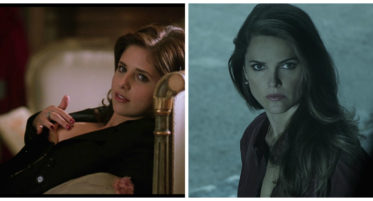
Prompt Images
Ironically, it was the creative burnout that sparked Milo’s idea.
For years, he’d been working at the ad agency, watching people fall away faster than autumn leaves in a windstorm, swearing that he’d never be so feeble. He was strong enough to endure, to be the rooted tree and not the foliage.
So, Milo took on hours upon hours of overtime, creating copy, overlooking mockups, whipping up taglines for spur-of-the-moment campaigns. Toothpaste. Detergent. Tennis shoes. Freaking laxatives. Milo had tried to sell it all, wrapping it up in a shiny, colorful package that made you think “do I need that? Yes, and even if I don’t, I sure as hell want it.”
He lived his life at the heart of consumerism, feeding into the fiery, undying underbelly of capitalism.
God, he hated himself.
That’s what Milo repeated as he stood in front of the mirror each morning, eyes exhausted with bags beneath them so large it looked like someone had set up an air mattress in each and over pumped. He was in the midst of an existential crisis, and just a plain ol’ crisis, like someone had unhooked all the neurons in his brain and blindly rematched them. Nothing clicked, from the small in a copy proof, to the large in why he was even there—not at work. Existing.
As far as Milo could tell, he had created his own problem—and had fed into those of everyone else living in their work-horse driven world. In playing a hand in convincing people what they needed was material, he was also playing a role in telling them that they didn’t need the immaterial. Work more, act as a happy cog in the machine and/or as a faceless disposable cyborg, all so you can buy that new sound system, or that next-season handbag, or the fleeting taste of happiness underlying them all. And then, when it wore off, start over again.
Milo had done it himself, brushed off and spurned loved ones to add a few extra hours to his time card for the prestige of a promotion or a bonus that would allow him to buy something and forget how terribly unhappy he was. Keep busy enough, and you can outrun anything, including yourself, he said. He didn’t realize he was lying.
There had to be a way out of the corporate single-mindedness.
A method or a philosophy or something that would recognize that people are humans first, not dollar signs or commodities—even if we treated each other as if we were. He needed an approach to recharge, re-evaluate, and reconnect with what mattered—the earth, family, passion, self-care, a life beyond the desk.
Spain had the siesta. England had their holidays. What did the United States have? Healthcare premiums that made you nauseous, and vacations that induced anxiety as you battled the urge to check your email. Milo believed there had to be something other than this.
The something hit Milo right in the retina one night. Drained after a 12-hour day at the office and the Grade-A reaming his boss delivered after he couldn’t make an expedited deadline, Milo clicked on the TV, hoping to lull himself into sleep with a passive program that required little brain power. His channel surfing landed him on an animal documentary centered on a family of brown bears making their way through the forest one roar at a time.
Between slow scrapes of a fork across a paper dinner plate and increasingly long blinks, Milo watched the family—a mom and two cubs—prepare for winter. They carbo-loaded on dinners of salmon, berries, tree roots, and their friendly neighborhood squirrels for weeks as they prepared their dens in hollow trees or caves like they were freaking Winnie the Pooh. Then, after their gorging and gaining dozens of pounds, they climbed into their dens for a winter nap.
Except, the bears’ nap was three months long.
Milo found himself drawn to the edge of his seat, watching agog the mammal marvel play out in front of him.
“Why can’t humans do that?” he mumbled to himself. While Milo expected no one to answer, the voice in his head conjured a response anyways. Humans aren’t like other mammals. They have jobs and rent and mortgages and families and a load of student loans to support unless they want to wither and die under them. They can’t just stop the world and take off a quarter of the year.
Or could they?
In a world where humans ranked well-being of higher importance than being well off, it would be a no-brainer. Bears and other animals needed hibernation to survive. Their bodies were created for it. Humans didn’t, but that didn’t mean that some form of hibernation couldn’t help them be their best, and reach their fullest potential. Give people the time to truly recharge and recalibrate, and Milo guaranteed they would be better off—and that you would see it in their performance.
He thought of his boss, Dennis, who hadn’t more than a few days of vacation in the past year, and his perpetual crankiness.
He was the prime example for needing more self-care time.
Maybe it wouldn’t have to be three months. Maybe it could be just one month—four consecutive weeks of a break. Maybe that would feel better than the whiplash jerk of a one-week, frenzied vacation.
Milo sat with his elbows to his knees, rubbing his hands back and forth in thought.
Holy shit, could this be the answer to all his problems? The world’s?
Most likely not, the voice in his head answered. He had plenty of stuff that he should probably unpack in therapy, and the world had more issues than this. But it would help.
With more inspiration and energy than Milo had flowing through his body in ages, he set to do what he did best: sell. Whipping out his laptop from his work bag he discarded at his front door where he couldn’t see it, Milo typed benefits of hibernation into Google—market research—to formulate his case.
Over the next couple weeks, he spent his limited free time building his campaign, sometimes stealing time from the agency when the creative bug kept biting.
Through heavy-lidded eyes, he made his assigned pitches, most coherent, and some trailing off in ways that had his coworkers giving him perplexed glances. Once they knew, they would understand, he figured. They’d thank him.
Then, one Thursday, with a computer of his most dazzling mockups and convincing stats, Milo entered Dennis’s office, his body electrified with a live wire walking the line between excitement and anxiety.
“Hey, Dennis,” he said.
“Morning,” Dennis replied without the slightest glance from his computer.
“Could I run something by you?” Milo asked, hand caught on the door, awaiting his answer. “A new campaign?”
From Dennis came a heavy sigh, a shoulder slump—a nonverbal no. A verbal, “sure.” Dennis steered himself away from his computer until his slightly bulging belly was flush against the white lacquered top of the desk. A product of too many sugary coffees, Dennis had told him once, along with a sworn oath to his partner that he’d start going to the gym. He hadn’t. Not enough time. “What’s this campaign?” he asked.
Milo lifted the cover of his laptop and the screen flashed to life with a photo of workers hunched at their desks, looking almost devoid of life. A slow song played under it, keys plunking to the tune of depression. “The world is constantly running at a sprint-pace, deadline after deadline, commitment after commitment. We’re running ourselves ragged, burning out faster than a novice street racer. But.” Milo raised his finger for effect. “It doesn’t have to be this way.”
With a tap of the space bar, Milo’s presentation advanced to a photo of a man reclined on his couch, completely and utterly relaxed. The clangs of the piano flowed into an upbeat melody.
“No, this isn’t heaven. This is hibernation.”
Milo looked from the keyboard to Dennis, who’s scraggly Sharpie eyebrows had knitted together. He was confused, yes, but he wasn’t angry or looking like he was ready to throw a mug of pens Milo’s way and tell him he’d handed him a bag of shit. Good, good, good, Milo’s heart beat.
“It’s time we took a page from our animal counterparts and learned that to survive means to take a time out. While humans can’t hibernate, what we can do is collectively make the time to leave the world behind for a month and recoup. Studies have shown that extended vacations increase worker productivity, creativity, and patience; make people more generous and ready to lend a helping hand; and less likely to hurt one another or commit a crime,” Milo explained as his computer began to display various pie charts reflecting the stats. “Not only is it good for the person and the business, but for the environment. With more people taking a break from their commutes, there are fewer greenhouse gasses going into our atmosphere, giving the ozone a break and ourselves more time on our planet.” The screen transitioned from a photo of the Earth with the sun on the horizon, to a slideshow of peppy people in various scenarios—at work, at home, in the park, at the local homeless shelter. “Human hibernation is the future of not only surviving, but thriving, and it’s time we embraced it, not only for ourselves, but the world.”
Milo spoke with as much gusto and confidence as a president knowing they have every Congressional vote behind them for their agenda. The music matched him, moving to a crescendo as he finished his pitch. The tune petered out, the screen faded to black, and Milo’s heart pumped inside his ribcage. If this was all it took to raise his heart rate, Milo knew he should be hitting the gym, too.
Across the desk of intimidation, Dennis was pensive, his mouth drawing in just like his brows.
Milo had seen the look on many occasions, half just before Dennis obliterated an idea, the other half when he praised it and approved it for sharing with a client. His fingers left his fist and drummed against the desktop.
“What client is this for?” he asked—the question Milo had worried about. Dennis was not receptive to having his time wasted, and unless he saw the genius in Milo’s idea, he would rate it as this.
“There’s no client,” Milo said, not letting the waver sneak into his voice.
Dennis nodded, and rested his arms atop the collage of photos that covered his desk. “So why are you bringing it to me?”
“Do you not like it?” Milo asked.
“I didn’t say that,” Dennis answered quickly. “I’m just asking why you wanted to show this to me.”
Milo stepped forward from his computer. “Because I believe every word I just said. This could change the world, and we could start the campaign that would do it.”
“We could start a campaign that would lose us a ton of our customers who would be pissed that we want to shut down their workforce.”
“But at a benefit to them. It’s a win-win-win situation,” Milo rebutted. “If we do viral marketing, this would catch like wildfire, and become a movement that people would have to listen to and our clients would have to get on board.” There would be no choice. You couldn’t stop a train in motion and this one would be going at full speed.
Dennis relaxed back in his chair, his eyes slowly traveling from the computer to Milo. “I can see you’re very passionate about it, Carlson.”
“I am. I think it’s a game changer,” Milo nodded.
“I don’t disagree,” Dennis said, buoying Milo’s hope. The beat of his heart changed to yes, yes yes. “But, I think that it’s a bit Pollyanna to think that it’s actually possible.” And there it was—the machete to his balloon bouquet. The long beat of no in his chest. “You know this world. You know how it is. We’re in no place for it to change, not right now.”
Milo took one step back, and then another, trying to find his bearings. He knew it was a long shot that Dennis would approve, but he nevertheless felt like the rug had been pulled out from under him, like he was looking at a math equation and five plus five was equaling anything but ten. “Isn’t that our job, though? To try to influence people, change their mind to do something?”
Dennis breathed the heaviest of his heavy sighs, the one weighted by annoyance. “To get them to buy a pair of Levi’s, not upend how we live,” he said. Despite the irritation, his expression was one of sympathy. “Listen, I’m all for you taking up this crusade. I could use hibernation as much as the next person.” He shoved his hand through his hair, strands flying one way and another, which wasn’t much different from his normal look. “But you have to fight that fight on your own time. We’re not the place to do it, not right now. Maybe start with legislators or civic action groups, aim to get mandated paid vacation and work up from there. If we can get somewhere, we can think about taking it up here.”
“Yeah.” Like someone had pressed on his shoulders, the slouch reappeared between the blades of Milo’s back as he bent to close his computer, the screen’s light switching off like his own. “If you think I have a better shot getting somewhere with government, then my chances aren’t very high.”
Suddenly, his idiocy was slamming him straight in the face.
How could he ever have thought this was a good idea? How did he let it get beyond the hopeful musing it was to standing here and making a goddamn pitch? Because he’s a damn idiot, he thought.
To his credit, Dennis didn’t placate Milo. He had never been one for lying, and his pity for Milo didn’t change that. He just said, “It seems like you maybe could use your own hibernation, too.”
“Probably,” Milo muttered. although the answer was definitely. He tucked his computer under his arm, as Dennis turned back to his monitor, fingers rehoming themselves on the keyboard.
“Put in for one.”
Milo stopped on his way to the door, and craned his head over his shoulder. “What?”
Once again, Dennis didn’t break eye contact with his computer. “Put in for your own hibernation, and I’ll sign off on it. Two weeks at the most.”
Frozen in his spot, Milo ran the words through his head once, twice, a dozen times to make sure he had understood. “I can take off for two weeks?” he asked, uncertainly. He desperately was in need of a break, something to get his head back on straight, but he had been frowned upon for taking five days off. Now, he was encouraged to take more than double that?
“Maximum. No adding on sick days or taking vacation in another month to extend it or any shit like that, but yes, you can take it,” Dennis said, and shifted his mouse, the glow of an email box reflected in his glasses. “You convinced one person. If it changes you, maybe I’ll take my own.”
The smile began small on Milo’s lips, growing slowly until it filled his face. “I’ll prove it to you.”



